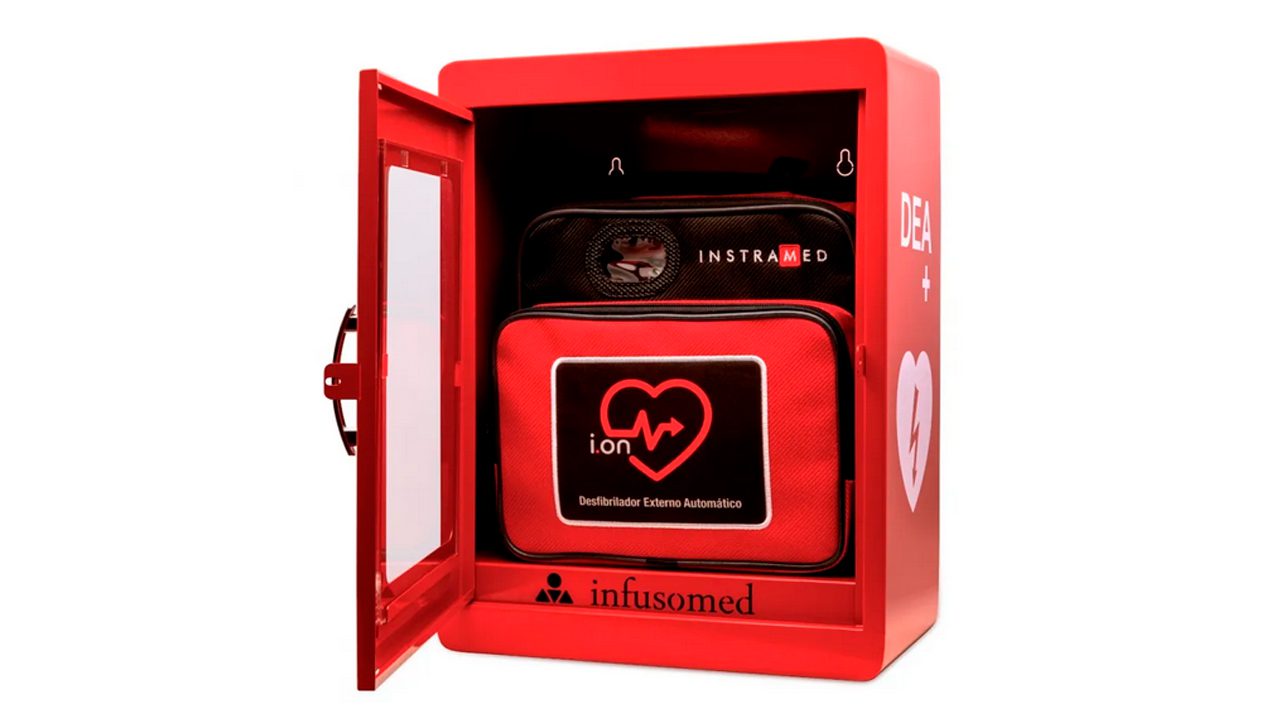In an unprecedented initiative, the Ejército de Tierra (Spanish Land Army) has opened doors to the Brazilian medical and hospital equipment market, choosing Instramed as its supplier of Automatic External Defibrillators (AEDs). The pioneering agreement not only highlights the excellence and innovation of Brazilian products, but also serves as a milestone for the country’s future business opportunities with the North Atlantic Treaty Organization (NATO).
“Winning this international contract not only strengthens our position in the market, but also highlights the potential of Brazilian industry in the medical-hospital sector. We are excited about the opportunities opening up in the member countries of the world’s largest political and military organization,” said Denis Barbosa, CEO of Instramed.
This is because, according to Barbosa, the company underwent a rigorous approval process with NATO, which now includes Brazilian industry on the organization’s prestigious list of commercial preferences. The contract was awarded in September last year when the company, through one of its distributors, won a tender to supply AEDs, along with preventive maintenance and overhaul services, to the Spanish army.
The initial estimated demand was for approximately 480 defibrillators. After a year, the Spanish armed forces exceeded expectations, resulting in a request to increase the initial scope by 25%, to a total of 660 units. The last batch of equipment under this contract is due to be delivered this November.
Essential equipment – The acquisition of AEDs by the Spanish Land Army reflects a commitment to the operational readiness and safety of troops in intensive missions and training. As well as increasing the resilience of the armed forces in emergency situations, the presence of this equipment is essential to guarantee a rapid and effective response in cases of sudden cardiac arrest, one of the main causes of death in situations of extreme stress.
“The mobility and ease of use of AEDs also make them indispensable tools in operations in varied terrain, where rapid response can be vital. By complying with strict international health and safety standards, the Spanish Army has demonstrated an unwavering responsibility for the well-being of its members by integrating AEDs into its operations,” explained Instramed’s CEO.
This action, adds Denis Barbosa, not only strengthens the army’s medical capabilities, but also facilitates continuous training in first aid and resuscitation techniques, ensuring that every member of the troops is prepared to act in critical moments.
Global demand – The global defibrillator market is projected to experience exponential growth, increasing from $12.71 billion in 2023 to $18 billion by 2028, with a compound annual growth rate (CAGR) of 7.20%, according to a report by Mordor Intelligence. This growth is driven by the increased prevalence of cardiovascular diseases and technological advances in the area of defibrillators.
According to data from the British Heart Foundation (BHF) in the same study, by 2022 the prevalence of heart and circulatory diseases would reach 46 million in North America, 99 million in Europe, 58 million in Africa, 32 million in South America, and an impressive 310 million in Asia and Australia.
In addition, demand for this equipment may be driven by the need for readiness in scenarios of global instability and geopolitical tensions. Since the outbreak of war between Ukraine and Russia, armed forces around the world have sought to strengthen their capabilities for rapid and effective response in emergency situations, which includes being well equipped to deal with medical issues on the battlefield or in peacekeeping missions.
Instramed – With a history marked by innovation and excellence, Instramed is one of the country’s leaders in the development and production of cardiac monitors, cardioverters and defibrillators. Based in Porto Alegre, Rio Grande do Sul, the company has established itself as a benchmark in the Brazilian medical-hospital sector, highlighting the potential and capacity of the national industry to compete on equal terms with foreign companies.
Entering the European Union market represents a significant step forward in the internationalization process of Instramed, a company that for almost four decades has been dedicated to developing advanced technologies to meet the growing needs of the healthcare sector, professionals in the field and regulatory requirements.
“Thanks to a legacy of hard work, dedication and the building of a solid reputation, we have gained the confidence needed to expand our horizons and establish a strong presence in Europe, uniting the words Spanish Army, NATO, Instramed and Medical Equipment in a single, powerful narrative,” celebrates Denis Barbosa
In Brazil, the company stands out for serving a wide range of clients, with public units being its largest in terms of installed park. These include the Bahia State Health Department (SESAB) and the Brazilian Hospital Services Company (EBSERH), which rely on a variety of equipment supplied by Instramed.
In the private sector, one of Instramed’s main clients is the DASA network, one of the largest integrated healthcare networks in Brazil. When it comes to Automatic External Defibrillators, the company serves the SmartFit gym network throughout the country, providing safety and readiness for emergency care in cases of sudden cardiac arrest, an important differential for places with a large circulation of people.
*** Translated by DEFCONPress FYI Team ***
